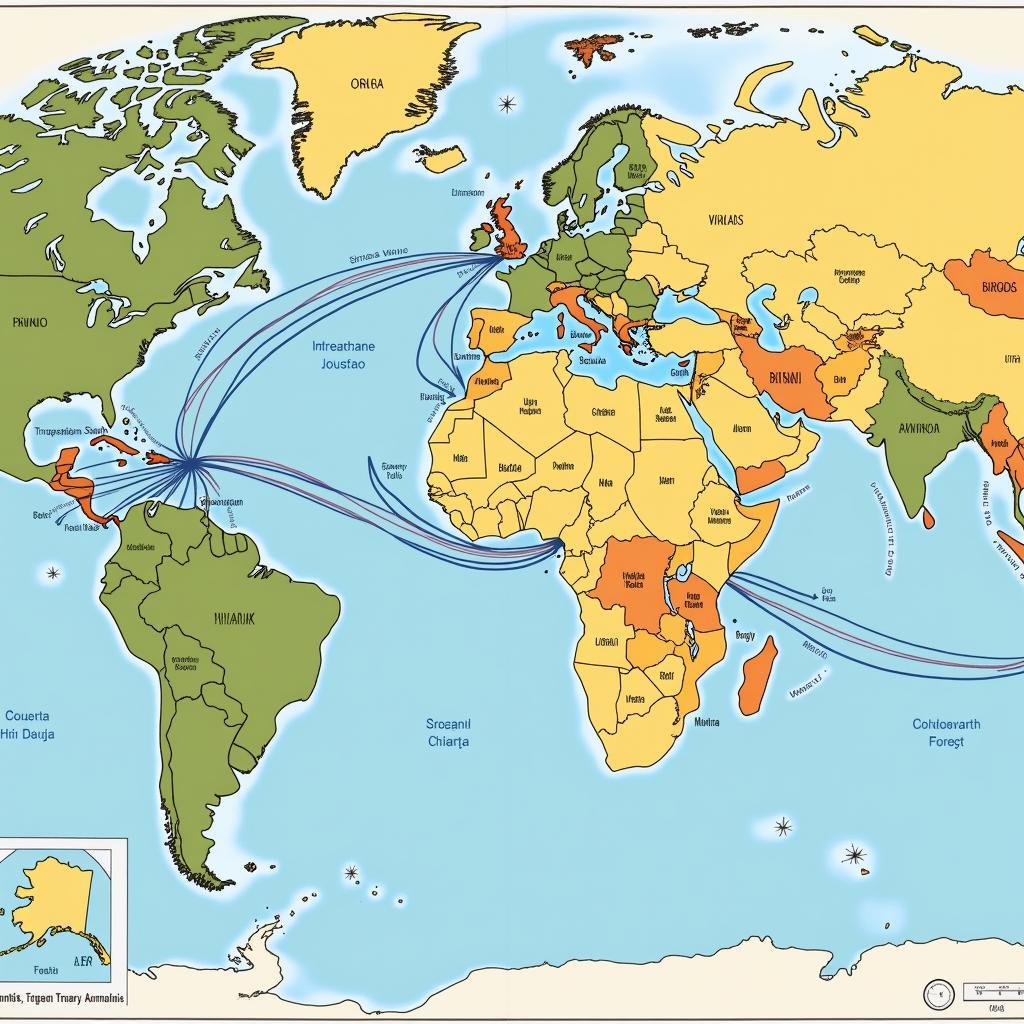Exploring the African Diaspora Novel
The African Diaspora Novel holds a unique place in world literature, offering a powerful lens through which to understand the complex experiences of displacement, identity, and belonging. These narratives explore the journeys of individuals and communities forced from their African homeland, scattering across the globe and creating new cultural landscapes. From the transatlantic slave trade to modern migrations, the African diaspora novel captures the enduring spirit and resilience of a people connected by a shared heritage. After reading this article, check out these African comics books.
Understanding the Historical Context of the African Diaspora Novel
The African diaspora, a forced migration spanning centuries, has profoundly shaped global history and culture. The transatlantic slave trade, a horrific chapter in human history, forcibly displaced millions of Africans to the Americas and the Caribbean. This forced migration created a complex and often traumatic legacy, which is explored in depth within the African diaspora novel. Later migrations, driven by factors like colonialism, economic hardship, and political instability, further dispersed African communities across the globe, adding new layers to the diaspora experience.
Understanding this historical backdrop is essential to appreciating the nuances of the African diaspora novel. The narratives often grapple with themes of loss, memory, and the search for identity in new and unfamiliar environments. The stories explore the challenges of cultural preservation and adaptation, as well as the ongoing struggle for social justice and equality.
 Historical Migrations of the African Diaspora
Historical Migrations of the African Diaspora
Key Themes and Motifs in African Diaspora Literature
Several recurring themes and motifs weave their way through the tapestry of the African diaspora novel. The search for identity, often fragmented and redefined by the experience of displacement, is a central concern. Memory plays a crucial role, serving as a link to the lost homeland and a source of both pain and resilience. The concept of “home” is often explored, becoming a fluid and contested space that exists both in memory and in the potential for new beginnings.
Cultural hybridity, the blending of African traditions with the cultures of new homelands, is another significant theme. These novels showcase the creativity and resilience of diaspora communities in forging new cultural expressions, blending music, language, and spiritual practices. The ongoing struggle against racism and discrimination, and the fight for social justice and equality, also feature prominently.
 Cultural Expressions in the African Diaspora
Cultural Expressions in the African Diaspora
Notable Authors and Works in the African Diaspora Novel
The African diaspora has produced a rich and diverse body of literature, with notable authors contributing powerful and insightful narratives. These authors give voice to the experiences of diaspora communities, exploring complex themes of identity, belonging, and resilience. Some key authors include Chinua Achebe, whose works explore the impact of colonialism on African societies, and Chimamanda Ngozi Adichie, who offers contemporary perspectives on Nigerian identity and the diaspora experience. For a deeper dive into African literature, explore these 10 amazing African literature book.
What are some common questions about the African diaspora novel?
Many people are interested in learning more about this complex and powerful literary genre. What are some of the most common questions?
- What defines an African diaspora novel? It explores the experiences of people of African descent who have been displaced from their homeland, focusing on themes of identity, belonging, and cultural adaptation.
- Why are African diaspora novels important? They provide valuable insights into the historical and cultural impact of forced migration, giving voice to marginalized communities and challenging dominant narratives. If you are interested in African American literature, check out this insightful resource: African American writer female.
- How does the African diaspora novel connect to other literary genres? It often intersects with postcolonial literature, exploring themes of power, identity, and resistance in the context of colonial legacies. Looking for suggestions? Here are some excellent African books to read.
Conclusion
The African diaspora novel offers a profound exploration of the human experience, illuminating the complexities of identity, displacement, and the enduring power of cultural heritage. These narratives provide a vital window into the lives and struggles of diaspora communities, challenging us to confront historical injustices and celebrate the resilience of the human spirit. Through the power of storytelling, the African diaspora novel fosters understanding, empathy, and a deeper appreciation for the interconnectedness of our world. If you’re a teacher, this African American history curriculum map can be a valuable tool.
 Family Connections Across Generations in the African Diaspora
Family Connections Across Generations in the African Diaspora
FAQ
-
What are some key characteristics of the African diaspora novel? Themes of displacement, identity, cultural hybridity, and the legacy of slavery and colonialism are often central.
-
How does the African diaspora novel differ from African literature? While related, African literature typically focuses on experiences within the African continent, while the diaspora novel explores the experiences of those displaced from Africa.
-
What is the significance of orality in the African diaspora novel? Many novels incorporate elements of oral storytelling traditions, reflecting the importance of oral history and cultural transmission within diaspora communities.
-
How does the African diaspora novel contribute to conversations about race and identity? It provides nuanced perspectives on the complexities of racial identity and the ongoing impact of historical injustices.
-
Where can I find more resources on the African diaspora novel? Academic journals, online literary databases, and cultural institutions often offer valuable resources and critical analyses.
Other Questions You Might Have
- What are some contemporary examples of the African diaspora novel?
- How has the genre evolved over time?
- What are the challenges faced by African diaspora writers?
Need Help?
For further assistance or inquiries, please contact us:
Phone: +255768904061
Email: kaka.mag@gmail.com
Address: Mbarali DC Mawindi, Kangaga, Tanzania
Our customer service team is available 24/7.